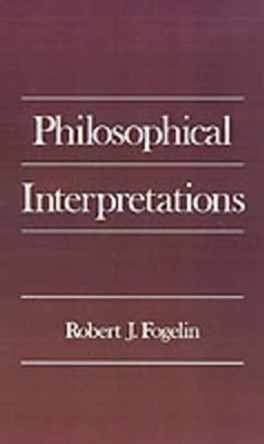In this updated edition of his brief, engaging book, Robert J. Fogelin examines figures of speech that concern meaning-irony, hyperbole, understatement, similes, metaphors, and others-to show how they work and to explain their attraction. Building on the ideas of Grice and Tversky, Fogelin contends that figurative language derives its power from its insistence that the reader participate in the text, looking beyond the literal meaning of the figurative language to the meanings that are implied. With examples ranging from Shakespeare, John Donne, and Jane Austen to e.e. cummings, Bessie Smith, and Monty Python, Fogelin demonstrates that the intellectual and aesthetic force of figurative language is derived from the opportunity it provides for unlimited elaboration. Fogelin presents a modern restatement of the view, first put forward by Aristotle, that metaphors are to be treated as elliptical similes. He then offers a detailed defense of this "comparativist" view of metaphors in response to criticisms that have been brought against it by a series of eminent philosophers. This new edition is updated to reflect more recent work on the topic and will interest philosophers, linguists, and literary theorists.
About the AuthorRobert Fogelin is Emeritus Professor of Philosophy at Dartmouth College. He is the author of Hume's Skeptical Crisis.
Book InformationISBN 9780199739998
Author Robert FogelinFormat Paperback
Page Count 144
Imprint Oxford University Press IncPublisher Oxford University Press Inc
Weight(grams) 191g
Dimensions(mm) 140mm * 216mm * 9mm





